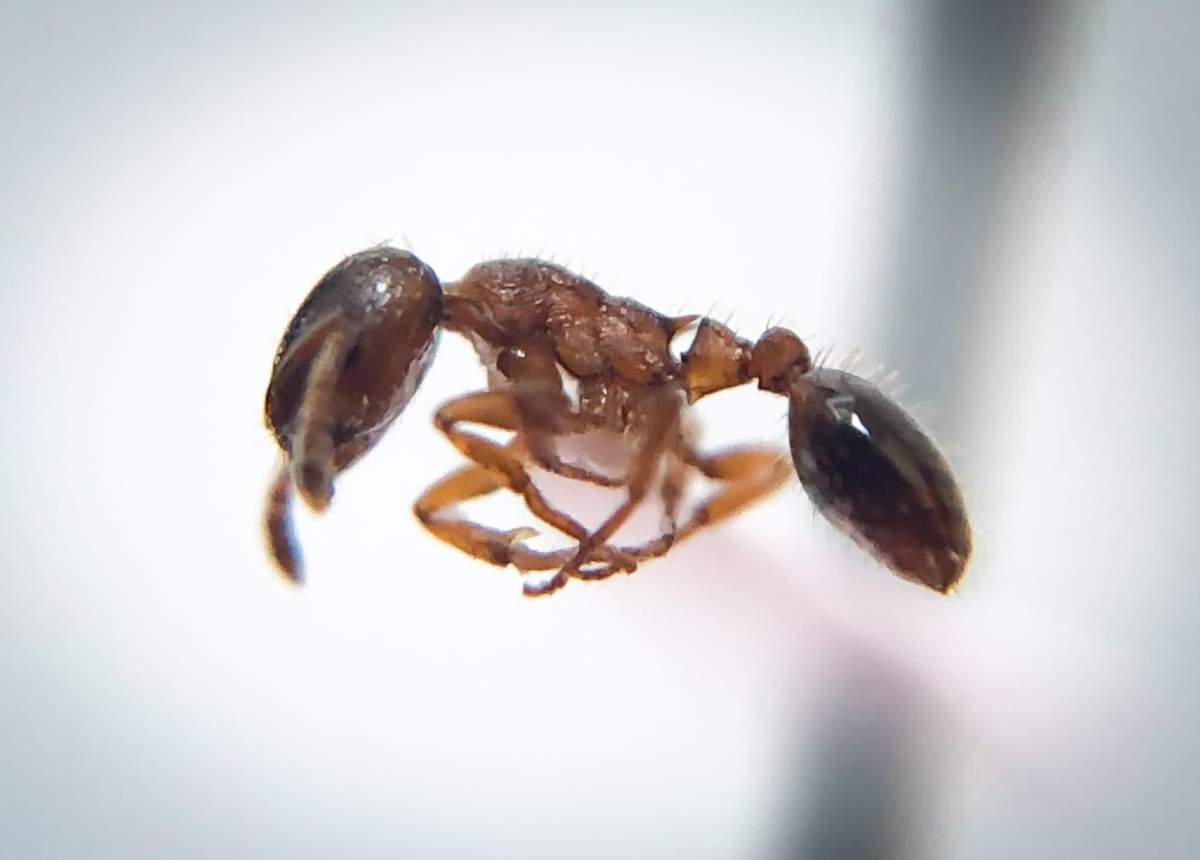A rare variety of ant known for enslaving another species has made its Atlantic Canada debut after researchers spotted it in a New Brunswick conservation area.

Aaron Fairweather, a doctoral candidate at the University of Guelph who studies ants, said he and a colleague discovered the so-called “slave-making” species Harpagoxenus canadensis on a birch branch in the Kennedy Lakes Protected Natural Area near Renous, N.B., during this year’s iteration of BiotaNB.
They were looking for a more common ant species at the annual event when they happened upon a nest that appeared to be housing two different species, he said.
“We were kind of astounded at first and we didn’t really know what was going on,” he said. “So we brought them back to the lab and looked throughout the literature.”
READ MORE: ‘My entire lawn is full of ants’: Regina residents deal with pest problem
That’s when they realized they had found the slave-making ants, which are rare because they need to find large quantities of the species they enslave in order to prosper. And the enslaved species, Leptothorax canadensis, requires very specific conditions to establish a nest.
“We find Leptothorax canadensis in these birch forests which have an open canopy, there’s kind of sparse positioning of the trees, there’s a lot of light that comes in from the canopy and then it’s radiating from the ground and we find the colonies specifically in branches of the birch trees that have fallen and are at a specific stage of decomposition,” Fairweather said.

Get breaking National news
WATCH: Gardening Tips: watering, fertilizer and ant tips

But once the slave-making ants find a colony of that species, they’ll take over the nest, he said.
“Harpagoxenus canadensis establishes a colony, eliminates the queen of the host Leptothorax canadensis, enslaves the workers and then goes out and marauds for other colonies of the canadensis to steal their brood and raise them as their own and make them do all the work,” Fairweather said.
Although the slave-making ants don’t sound friendly, Fairweather said their presence is an indicator of a healthy ecosystem.
“If you have an environment that is able to support more ant species you’re having a healthier soil system, you’re just having a more stable ecosystem in general,” he said. “And if you have a high density of that host species you’re going to have the slave-makers start to appear.”
READ MORE: Calgary bug expert worries early season will hurt insect populations
He added that their presence highlights the importance of protecting the Kennedy Lakes area. The species has also been found in Quebec, southern Maine and Minnesota.
Plus, he said, they’re pretty darn fascinating.
“Personally, I find the slave-making behaviour quite interesting,” he said. “It’s something so comparable to humans in a way – in a very negative and scary manner – but it’s amazing that these ants have evolved this behaviour where they need a host species in order to survive.”







Comments
Want to discuss? Please read our Commenting Policy first.